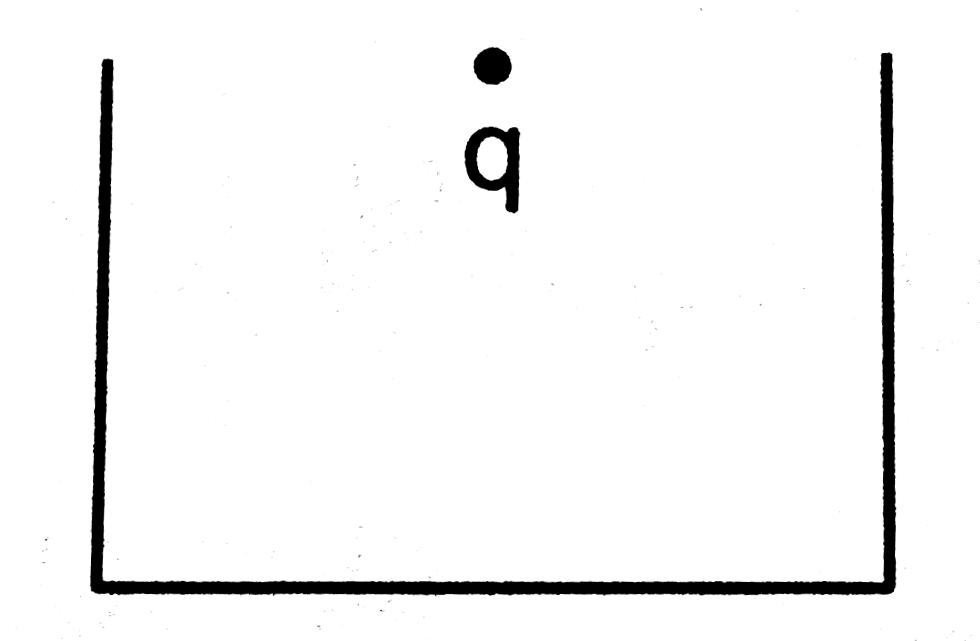A charge q is placed at the centre of the open end of a cylindrical vessel . The flux of the electric field through the surface of the vessel is

q2ε0
qε0
q3ε0
zero
The correct Answer is:A
∫¯¯¯E.¯¯¯¯ds=qε0
Topper's Solved these Questions
- BOOK - NARAYNACHAPTER - ELECTRIC CHARGES AND FIELDSEXERCISE - EXERCISE -2 (C.W.)39videos
ELECTRIC CHARGES AND FIELDS
- BOOK - NARAYNACHAPTER - ELECTRIC CHARGES AND FIELDSEXERCISE - EXERCISE -2 (H.W)36videos
ELECTRIC CHARGES AND FIELDS
- BOOK - NARAYNACHAPTER - ELECTRIC CHARGES AND FIELDSEXERCISE - EXERCISE -1 (C.W)24videos
ELECTRIC CHARGES AND FIELDS
- BOOK - NARAYNACHAPTER - DUAL NATUREEXERCISE - LEVEL-II (H.W)17videos
DUAL NATURE
- BOOK - NARAYNACHAPTER - ELECTRO MAGNETIC INDUCTIONEXERCISE - Level-II (H.W)23videos
ELECTRO MAGNETIC INDUCTION
Similar Questions
Knowledge Check
- Question 1 - Select One
A charge 'Q' is placed at the centre of a hemispherical surface of radius 'R'. The flux of electric field due to charge 'Q' through the surface of hemisphere is
AQ/4ε0BQ/4πε0CQ/2ε0DQ/2πε0 - Question 2 - Select One
a point charge q is placed at the centre of a cylinder of length L and radius R the electric flux through the curved surface of the cylinder is
Aqε0L√L2+R2Bqε0L√L2+2R2Cqε0L√L2+4R2Dq2ε0 - Question 3 - Select One
A charge Qis placed at the mouth of a conical flask. The flux of the electric field through the flask is
AzeroBQε0CQ2ε0D<Q2ε0
A charge Q is placed at the centre of a cub. Find the flux of the electric field through the six surfaced of the cube.
View SolutionA charge q is placed at the centre of a cylinder of radius R and length 2R. Then electric flux through the curved surface of the cylinder is
View SolutionA charge of 8.85C is placed at the centre of a spherical Gaussian surface of radius 5cm .The electric flux through the surface ..
View SolutionA charge q is placed at the centre of the cubical vessel (with one face a open) as shown in figure. The flux of the electric field through the complete vessel is
 View Solution
View SolutionThe flux of electric field due to these charges through the surface S is
 View Solution
View Solution

